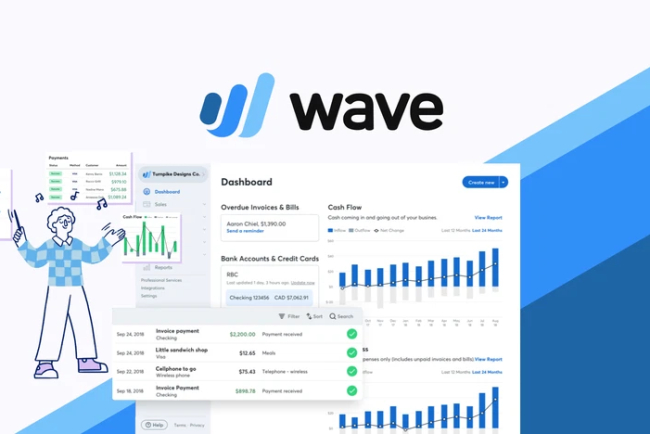Do I need a business account as a sole trader?
"Do sole traders really need a business bank account? Discover legal requirements, hidden risks, and the practical benefits of separating finances. Learn how a business account boosts credibility, simplifies tax, saves money, and opens doors to bigger clients—all with actionable steps and real-world case studies tailored for freelancers and UK sole traders.

Your Complete Guide to Making the Right Choice
Starting your own business as a sole trader is an exciting journey, but it comes with plenty of questions. One of the most common dilemmas new entrepreneurs face is: "Do I really need a separate business bank account?"
If you're running a small freelance operation or just starting out, you might think your personal account will do just fine. But before you make that decision, let's dive deep into what it really means to be a sole trader and why your banking choices could make or break your business success.
What Is a Sole Trader?
A sole trader is someone who runs their own business as an individual, rather than through a company or partnership. You're essentially the business – there's no legal distinction between you and your business entity. This means you're personally responsible for all business debts, but you also get to keep all the profits.
Think of sole traders as the freelancers, consultants, small shop owners, tutors, photographers, or craftspeople who work independently. You might be a graphic designer working from your home office, a personal trainer offering services in your local area, or someone who sells handmade jewelry online.
Why Bank Accounts Matter for Sole Traders
Your bank account isn't just where money sits – it's the financial backbone of your business. Every transaction tells a story about your business performance, and how you manage these transactions can significantly impact your success, credibility, and peace of mind.
Many sole traders start by using their personal accounts for business transactions, thinking it's simpler and cheaper. While this isn't illegal, it can create complications that grow more problematic as your business expands.
The Key Benefits of Having a Business Account
1. Professional Image and Credibility
Imagine you're a potential client who just received an invoice asking for payment to "Sarah Johnson's Personal Account." Compare that to receiving payment details for "Johnson Marketing Solutions Business Account." Which one makes you feel more confident about the service provider's professionalism?
A business account immediately elevates your professional image. When clients see business account details on your invoices, they perceive you as more established and trustworthy. This can be the difference between landing a big contract and losing it to a competitor who appears more professional.
Real-life scenario: Mark, a freelance web developer, lost a £5,000 project because the client felt uncomfortable paying into his personal account. They questioned whether he was properly established and legitimate. After opening a business account, his client conversion rate improved by 30%.
2. Simplified Bookkeeping and Record-Keeping
When your business and personal finances are mixed together, accounting becomes a nightmare. You'll spend hours each month trying to separate business expenses from personal ones, identifying which restaurant meal was a client meeting and which was just lunch.
With a dedicated business account, every transaction is business-related. Your bank statements become a clear record of your business activity, making it infinitely easier to track income, expenses, and cash flow patterns.
Real-life scenario: Emma, a marketing consultant, used to spend entire weekends sorting through her personal account statements, highlighting business transactions with different colored pens. After switching to a business account, she reduced her monthly bookkeeping time from 8 hours to just 2 hours, giving her more time to focus on growing her business.
3. Streamlined Tax Management
Tax season doesn't have to be terrifying. When all your business transactions flow through a dedicated account, calculating your tax obligations becomes straightforward. You can easily identify deductible business expenses, track your income accurately, and provide clear documentation if HMRC ever has questions.
Many business accounts also integrate with accounting software, automatically categorizing transactions and preparing reports that make tax filing much smoother.
Real-life scenario: James, a freelance photographer, once faced an HMRC audit. Because he mixed personal and business transactions, he couldn't properly document £3,000 worth of legitimate business expenses. He ended up paying additional tax and penalties that could have been avoided with proper account separation.
4. Enhanced Client Trust and Payment Options
Business accounts often come with additional payment processing options that personal accounts don't offer. You can accept card payments, set up direct debits, and offer payment plans – all of which make it easier for clients to pay you.
Moreover, when clients see professional payment options and business account details, they trust that you're a legitimate business operator, not someone running a casual side hustle.
5. Clear Separation of Personal and Business Finances
This separation protects your personal finances and makes it much easier to understand your business's true financial health. You can quickly see if your business is profitable, identify spending patterns, and make informed decisions about investments or expenses.
Without this separation, it's easy to accidentally spend business money on personal items or vice versa, creating confusion and potential cash flow problems.
Real-life scenario: Lisa, a personal trainer, thought her business was doing well because her personal account always had money. However, she was unknowingly using business income for personal expenses. When tax time came, she realized she hadn't set aside enough money for her tax bill and faced serious cash flow issues.
6. Access to Business-Specific Services
Business accounts often provide access to services that personal accounts don't offer:
- Business loans and credit facilities
- Merchant services for card payments
- Business insurance options
- Financial advice tailored to business needs
- Integration with business accounting software
- Overdraft facilities designed for business cash flow
The Downsides and Challenges
Monthly Fees and Transaction Costs
Most business accounts come with monthly maintenance fees, transaction charges, and other costs that personal accounts don't have. For a new sole trader with limited income, these fees can feel significant.
However, many banks offer fee-free periods for new businesses, and the professional benefits often outweigh the costs as your business grows.
Additional Paperwork and Requirements
Opening a business account requires more documentation than a personal account. You'll need to provide business registration details, proof of address, identification, and sometimes business plans or financial projections.
The application process can take longer, and some banks have minimum deposit requirements or monthly turnover thresholds.
Eligibility and Approval Requirements
Not everyone automatically qualifies for a business account. Banks may review your credit history, business plan, and financial stability before approval. If you have poor personal credit, this could impact your application.
Real-Life Examples: The Difference a Business Account Makes
Scenario 1: The Struggling Consultant
Rachel runs a small marketing consultancy from home. She uses her personal account for everything – client payments, business expenses, and personal spending all mixed together.
Problems she faces:
- Spends 3 hours every week trying to separate business and personal transactions
- Missed claiming £800 in legitimate business expenses last year because she couldn't prove they were business-related
- Lost a major client who questioned her professionalism when she provided personal account details
- Had to pay an accountant extra fees to sort through mixed statements
- Struggles to understand if her business is actually profitable
Scenario 2: The Organized Entrepreneur
Tom runs a similar consultancy but uses a dedicated business account.
His experience:
- Bank statements clearly show all business activity
- Easily tracks monthly profit and loss
- Clients pay promptly into his professional business account
- Integrates his account with accounting software for automatic expense categorization
- Confidently claims all legitimate business expenses
- Understands his business's financial health at a glance
The difference? Tom's business appears more professional, his finances are organized, and he spends more time growing his business instead of managing financial chaos.
Do You MUST Have a Business Account?
Here's the straightforward answer: No, sole traders are not legally required to have a business account. You can legally operate using your personal account.
However, should you have one? In most cases, absolutely yes.
The question isn't really about legal requirements – it's about setting your business up for success. While you might save a few pounds monthly in account fees, you could lose much more in missed opportunities, disorganization, and professional credibility.
When You Might Skip a Business Account (For Now):
- You're just testing a business idea with very minimal transactions
- Your business income is extremely low (under £1,000 annually)
- You're in a transition period and plan to incorporate soon
When You Definitely Need a Business Account:
- You have regular clients making payments
- Your annual business income exceeds £1,000
- You want to appear professional and established
- You claim business expenses on your tax return
- You accept card payments or want to offer payment plans
- You struggle to separate personal and business transactions
Professional Recommendations
Based on years of working with sole traders, here's my advice:
Get a business account as soon as you're serious about your business. The professional credibility alone often pays for the account fees through improved client conversion rates.
Start by researching accounts with:
- Low or no monthly fees for the first year
- Free transaction allowances
- Integration with accounting software
- Good online and mobile banking features
- Responsive customer service
Remember, changing accounts later is more disruptive than starting with the right setup from the beginning.
Streamline Your Business Operations with the Right Tools
Speaking of setting your business up for success, having the right banking setup is just the beginning. Gomsu Information Technologies offers comprehensive solutions that can transform how you manage your sole trader business.
Whether you need efficient POS systems for seamless transactions, CRM tools to manage client relationships, automation solutions to save time, social media marketing to grow your reach, LMS platforms for training, payroll services, or reliable cloud solutions – Gomsu has you covered.
The best part? They offer excellent discounts on pricing to help growing businesses access professional-grade tools without breaking the budget.
Click here to know more and explore solutions that can simplify your business operations.
Don't let administrative tasks hold back your business growth. The right combination of proper banking and efficient business tools can free you to focus on what you do best – serving your clients and growing your business.
Final Thoughts
Choosing whether to open a business account as a sole trader isn't just about money – it's about positioning your business for growth and success. While you're not legally required to have one, the professional benefits, organizational advantages, and peace of mind make it a worthwhile investment for most serious business owners.
Take some time to evaluate your business goals, current transaction volume, and professional aspirations. If you're committed to building a successful, sustainable business, a dedicated business account is one of the smartest early investments you can make.
Found this helpful? We'd love to hear from you! Like this article if it answered your questions, share it with other entrepreneurs who might benefit, and leave a comment below with your own experiences or questions about sole trader banking.
Have specific doubts or queries about your business setup? Don't hesitate to ask in the comments – we're here to help fellow entrepreneurs succeed.
Subscribe to our newsletter for more practical business advice, financial tips, and updates on tools that can help grow your business. Your journey to business success starts with making informed decisions, and we're here to support you every step of the way!
What's Your Reaction?




















